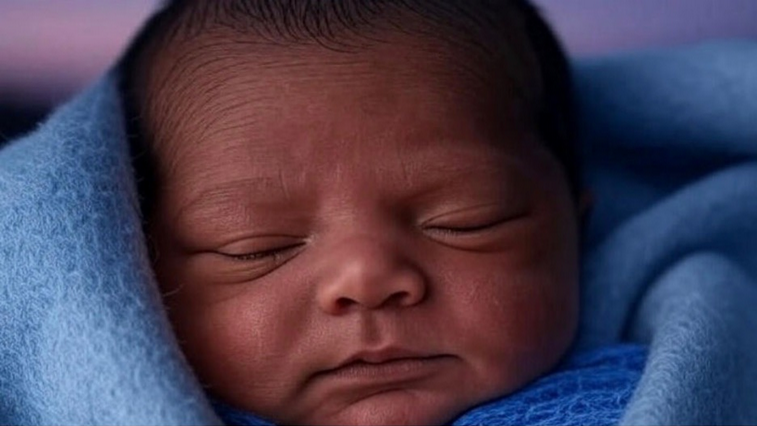
By Tracy Beanz & Michelle Edwards
Understanding the critical importance of Bifidobacterium in an infant touches on a field that is as delicate and vital as the unfolding of a life’s first breath. Yes, laying the foundation for an infant to begin its life with a healthy gut is that important. Indeed, in the tapestry of infancy, Bifidobacterium species emerge as foundational weavers—early colonizers of the infant gut whose role threads through immunity, development, and even long-term health. Yet, sadly, a new study has found a widespread deficit of Bifidobacterium in infants born in the United States, which is driving prevalent gut dysbiosis and an increased risk of allergic disease. In other words, in both grounded study and in the more intrinsic delicate balance of new life, many infants in the US suffer a disturbance in the likewise delicate microbial symphony forming within their newborn gut, leaving them prone to various allergic outcomes, including food allergies, eczema, and asthma, all conditions that significantly disrupt their health.
The study, published on June 24, 2025, and titled “Bifidobacterium deficit in United States infants drives prevalent gut dysbiosis,” is based on data from 412 infants across all 50 states in the first nationwide cross-sectional analysis of the infant microbiome. The research in the analysis, also known as the My Baby Biome study, found that an astounding one in four US babies carry no detectable amount of the fundamental gut bacteria Bifidobacterium, a genus that once dominated the guts of breast-fed babies worldwide. Wow. While in dire need of repair, this shift is not surprising given how far society has been led—through intentional propaganda—to let the pharmaceutical industrial complex shape their health, and in extension, their lives.
According to the study, this critical Bifidobacterium deficiency reflects a rise in noncommunicable diseases (NCDs) overtaking infectious diseases, with toddler allergy diagnoses doubling over the past two decades. We can thank birth by cesarean section (sometimes a medical necessity but sometimes done selfishly for convenience) for the decline, as well as antibiotic use and formula feeding, which disrupt the uber critical early microbial development. Still, according to the study, the exact ecological gap left by the absence of Bifidobacterium is unclear. Nonetheless, the study found that this gap is significant as the infant microbiota shapes immune function, vaccine responses, and metabolic health.
Again, the absence of this bacterium raises an infant’s risk for a myriad of adverse health challenges, emphasizing the fact that the microbiome is a powerful early-life health determinant. Why? Quite simply, the absence or suppression of Bifidobacterium shifts the early-life biome of an infant toward imbalance. Think about it—the stakes are subtle yet incredibly profound, and the gut-brain-heart connection is very real. As just stated, Bifidobacterium shapes immune intolerance, metabolic pathways, vaccine defenses (yet let’s not forget that vaccines themselves may very well contribute to the problem), and even neural development. An earlier 2022 study published in PubMed underscored the importance of Bifidobacteria in infants, noting:
“The presence of Bifidobacterium species in the maternal vaginal and fecal microbiota is arguably an evolutionary trait that allows these organisms to be primary colonizers of the newborn intestinal tract. Their ability to utilize human milk oligosaccharides fosters their establishment as core health-promoting organisms throughout life. A reduction in their abundance in infants has been shown to increase the prevalence of obesity, diabetes, metabolic disorder, and all-cause mortality later in life.”
The recent study, led by John B. Jarman, PhD, and Stephanie J. Culler, PhD, documented that sequencing detected a total of 559 different gut microbiome species across all samples, with an average of just 12.1 species per infant, showing newborn guts are less diverse than adult microbiomes. However, as highlighted by News-Medical Life Sciences, Bifidobacterium showed a pronounced bimodal pattern: reads were entirely absent in 24 percent of infants, including 35 percent delivered by cesarean section and 19 percent born vaginally. When present, four species are identified, namely Bifidobacterium breve, Bifidobacterium bifidum, Bifidobacterium longum subsp. longum, and Bifidobacterium longum subsp. infantis dominated; still, B. infantis appeared in only 8 percent of samples.
The low appearance of B. infantis, a keystone species in all populations, revealed high colonization by potentially pathogenic Clostridium perfringens (a common food poisoning caused by C. perfringens bacteria), elevated virulence and antimicrobial resistance genes, disrupted human milk oligosaccharide (HMO) metabolism (HMOs from breast milk act as “decoys” to block pathogens from binding to an infant’s gut lining), and significantly higher risk of eczema, asthma, and allergy by two years of age. The presence of B. breve was associated with a 4.8-fold reduced risk of adverse immune outcomes. Surprisingly, as summarized by TrialSite News, C-section infants who were breastfed often had suppressed Bifidobacterium colonization, suggesting niche competition from other HMO-consuming pathogens, which use the HMOs for their own growth instead of being available to protect the infant. Speaking of the study, the brilliant Dr. Sabine Hazan, founder and CEO of Progenabiome, noted:
“A technically rigorous, multi-omics snapshot of early-life gut health—strong in depth and scope, but its true impact awaits long-term tracking and serious independent validation. At Progenabiome we are conducting a series of significant tests and look forward to read more about further validation of the My Baby Biome study.”
Once again, when pondering the extraordinary power of the human body when it is aligned with nature and well cared for, we are faced with the loud and clear realization that it is up to us to take control of our health, and the health of our children. Knowing that Bifidobacteria are the colonizers of the newborn gut, being at optimal health when bringing an infant into the world (this means shopping local for meats and vegetables, avoiding GMOs, glyphosate, processed foods, and the overuse of pharmaceutical drugs, amont other things—sadly the list is very long), and then breastfeeding, is paramount because these vital bacteria strengthen the infant’s gut barrier, reduce inflammation, and help “educate” the developing immune system. Each potentially reducing risks of allergies, type 1 diabetes, and inflammatory conditions, among other chronic ailments.
Faced with this sad reality, what emerges upon pondering the delicate balance that exists as new life emerges is not a prescription for interference from Big Pharma. No indeed. Instead, what emerges is an inner calling for resonance with our Creator. The question evolves to be more like “How might we support this silent alliance between infant and microbe with a mindful and proper maternal diet, breastfeeding, prudent use of drugs like antibiotics, and thoughtfully selected microbial interventions?” After all, as the infant’s first breaths emerge and microbiota unite in delicate interplay, dysbiosis is not really a failure, but more of a shift in the tapestry’s pattern, reflecting the absence of ancestral rhythms—of those essential microbes that are meant to anchor the healthy, lifelong foundation of a newborn infant.








